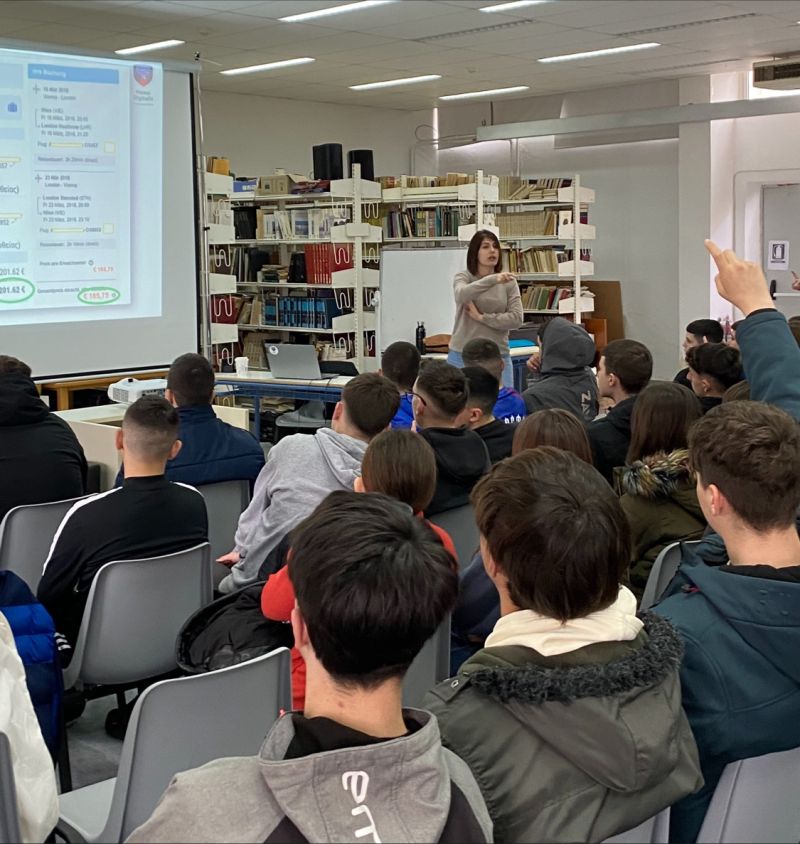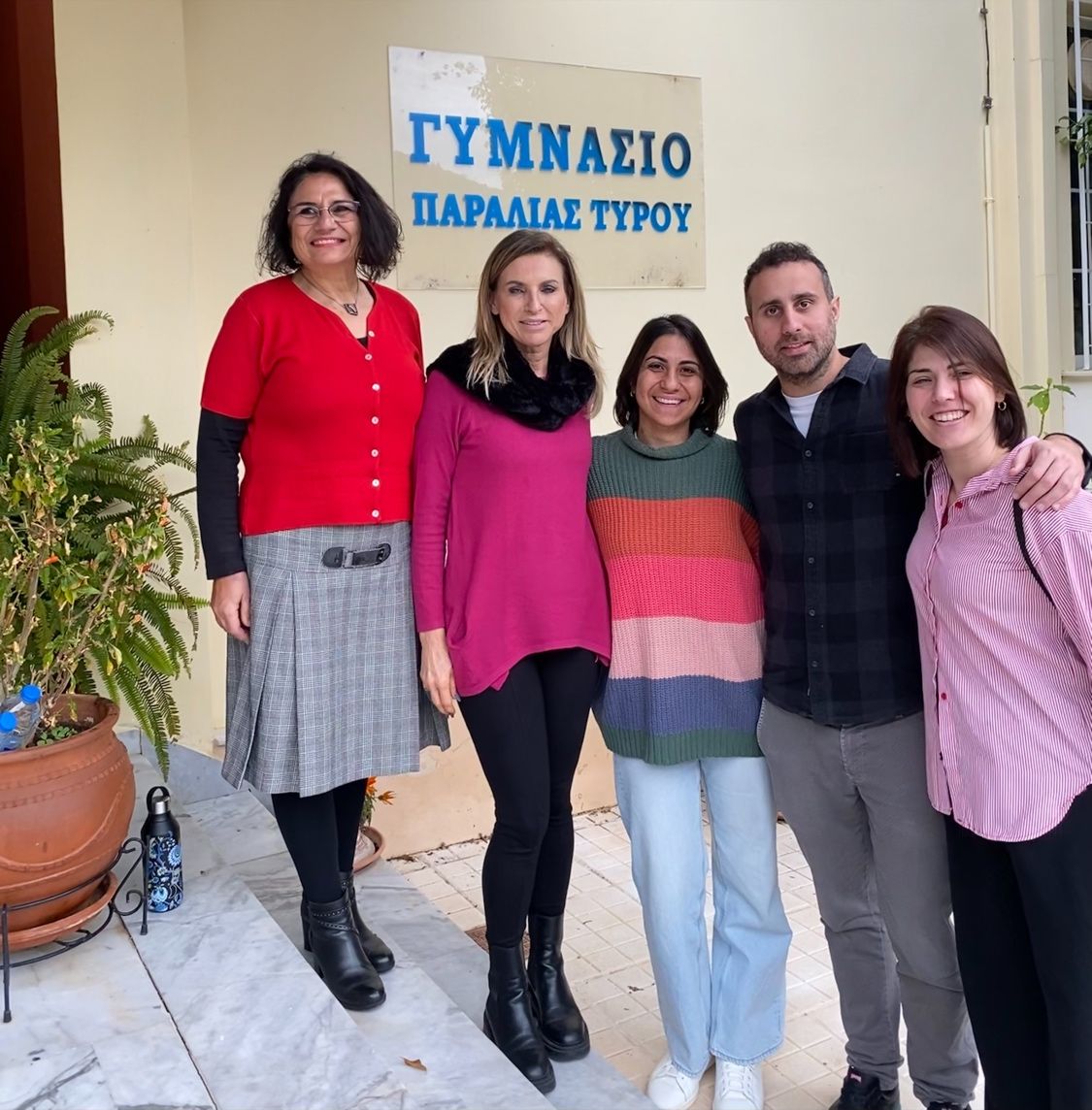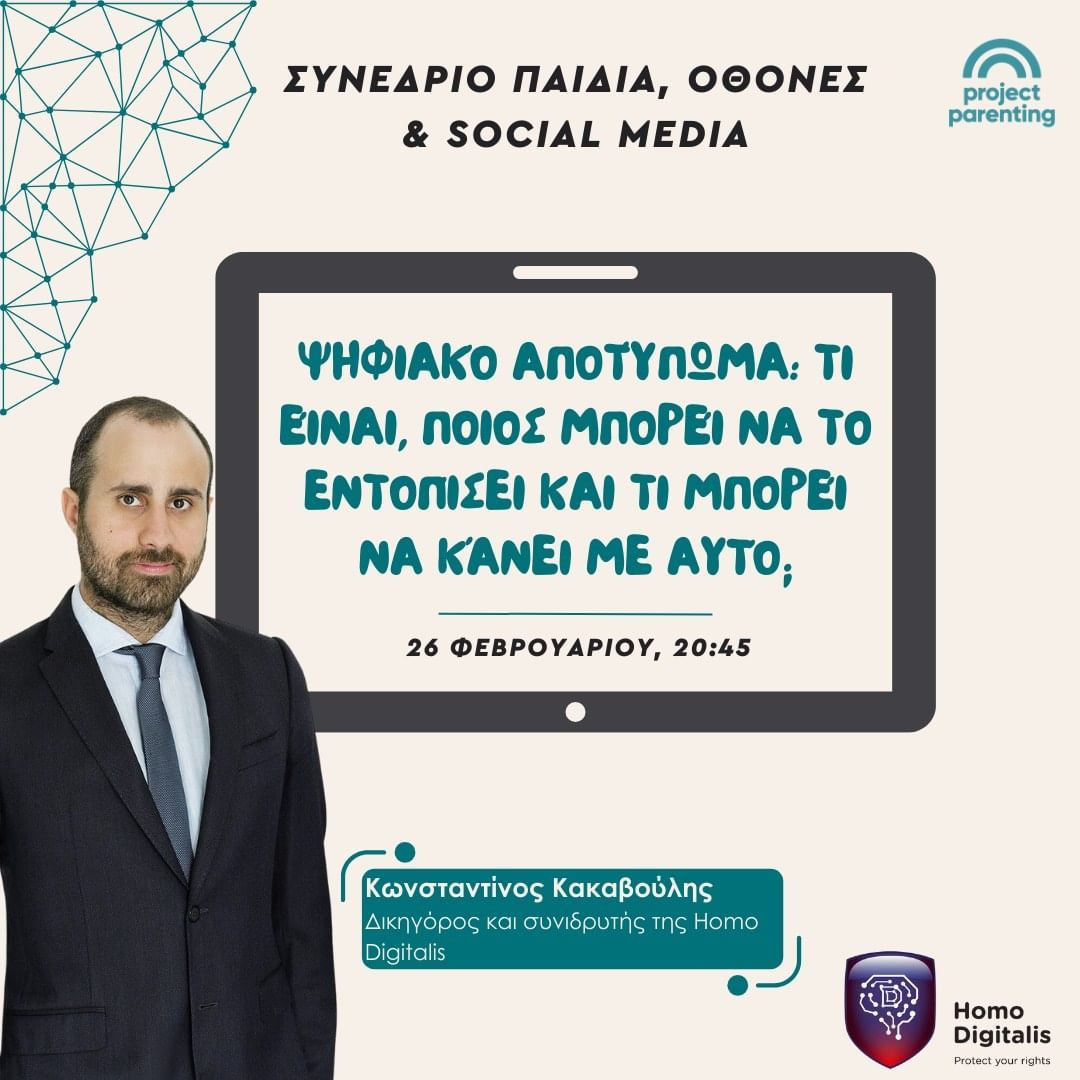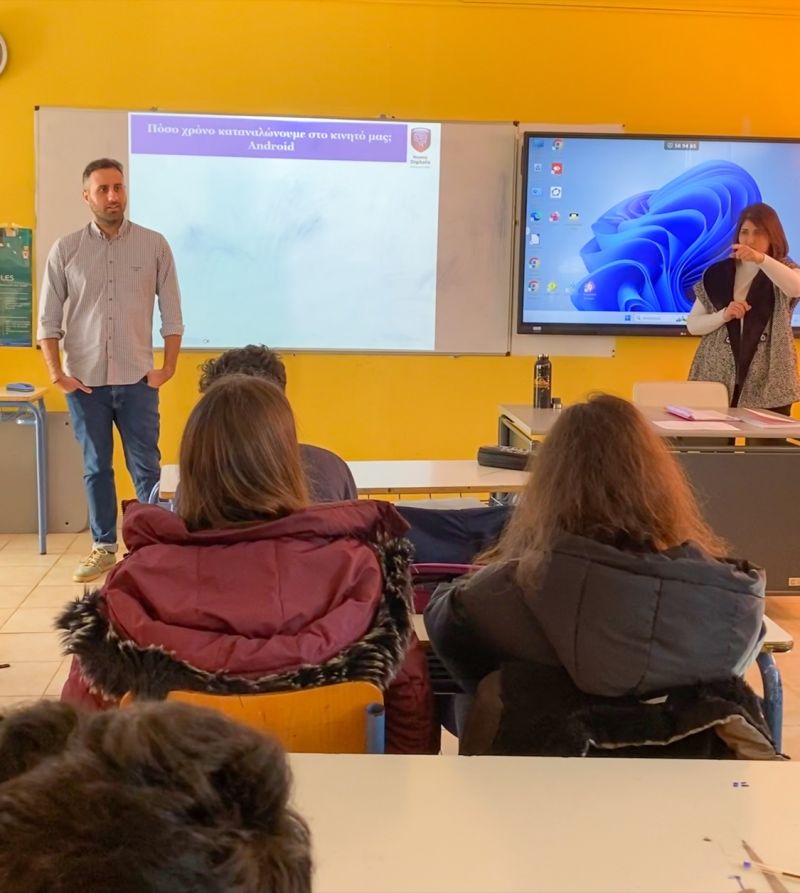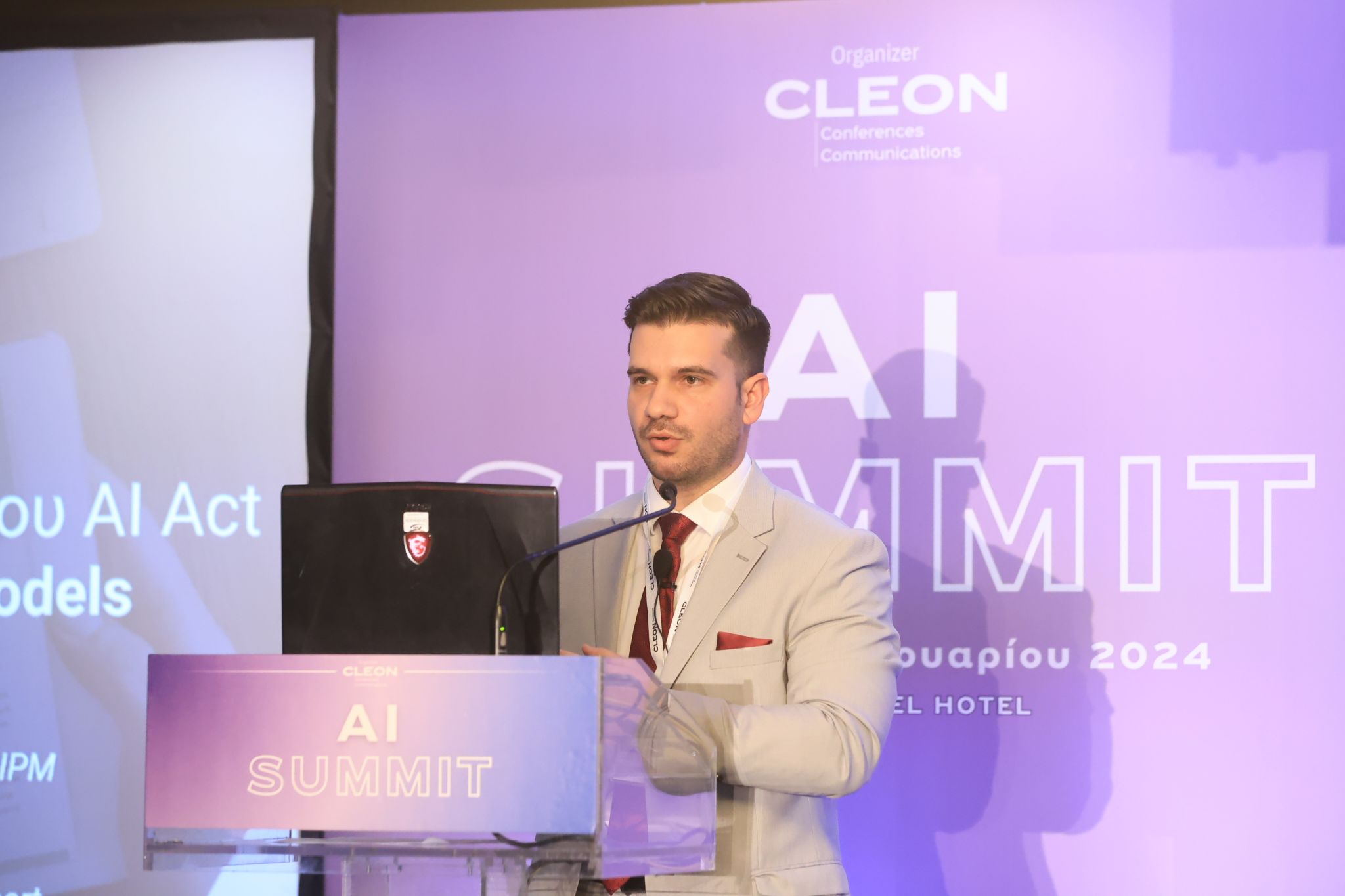Voluntary educational actions in schools: Homo Digitalis visits a high school in Velo, Corinthia
Last week Homo Digitalis hit the road!
In a 1500 km tour, we visited 4 schools in the Peloponnese and Central Greece and talked to more than 600 students and teachers!
On the third day, Lamprini Gyftokosta and Konstantinos Kakavoulis were in Velo Corinthia and talked to all the students and teachers of the high school about the digital footprint
We would like to thank the management and teachers of the school for the invitation and the warm welcome!
Voluntary educational actions in schools: Homo Digitalis visits the high school in Molai in Laconia
Last week Homo Digitalis hit the road!
In a 1500 km tour, we visited 4 schools in the Peloponnese and Central Greece and talked to more than 600 students and teachers!
On the first day, Lamprini Gyftokosta, Nikoletta Georgakopoulou and Konstantinos Kakavoulis were in Molaos Lakonia and talked to all the students and teachers of the high school about the digital footprint.
We would like to thank the management and teachers of the school for the invitation and the warm welcome!
Voluntary educational actions in schools: Homo Digitalis visits a high school in Tyros Arkadia
Last week Homo Digitalis hit the road!
In a 1500 km tour, we visited 4 schools in the Peloponnese and Central Greece and talked to more than 600 students and teachers!
On the second day, Lamprini Gyftokosta, Nikoletta Georgakopoulou and Konstantinos Kakavoulis were in Tyros Arkadia and talked to all the students and teachers of the high school about the #digitalfootprint
We would like to thank the school’s management and teachers for the invitation and the warm welcome!
Homo Digitalis on the European AI & Society Fund's list of AI experts
The European AI & Society Fund has published on its website a Register of Experts on issues related to the fields of Human Rights and AI, from its partner organisations.
We are honored and delighted that Homo Digitalis is in this registry with dual representation from our Director of Human Rights & AI, Lambrini Gftokosta and our Board Secretary, Lefteris Chelioudakis
You can see in detail the members of the register and the variety of topics in which they specialize here.
Many thanks to the European AI & Society Fund for the opportunity to promote Homo Digitalis' expertise and knowledge internationally!
Homo Digitalis wins two prestigious international awards!
We don’t do it for the awards… but we are happy when international bodies recognize our contribution to the protection of Human Rights in the modern digital age!
We are delighted that Homo Digitalis received two awards for 2023!
-“Best Digital Rights Protection Agency – Greece”, in the context of the Artificial Intelligence Awards by Corporate Vision Magazine,
– “Best Digital Rights & Freedoms Legal Experts 2023 – Greece” in the context of the Legal Awards by Acquisition International Magazine
For us, the only true award is the significant impact our actions have on our society!
Speech by Homo Digitalis at an online event of Project Parenting
If you’re nervous about…
-Whether screens are addictive.
-How to manage screen time for your kids.
-How screens affect children’s relationship with food.
-The effect of exposure to screens.
And much more…
All you have to do is #Register for the “Are Screens Bad After All?” conference. organized on 26 & 27 February by Project Parenting, the 1st educational platform for parents in Greece!
Konstantinos Kakavoulis Lawyer and co-founder of Homo Digitalis will represent us there to inform parents with his successful presentation “Digital Footprint: What it is, who can detect it and what they can do with it”. We would like to thank the organizers for their kind invitation!
You can attend it #completely #FREE #online on 26 & 27 February! Registration.
Voluntary educational actions in schools: Homo Digitalis visits Anthoussa High School
Homo Digitalis continues its educational actions in schools!
Yesterday, Konstantinos Kakavoulis and Lambrini Gyftokosta were at Anthousas High School, where they spoke with the students of the 3rd grade about the Digital Footprint.
We would like to thank the students and teachers for the invitation and the excellent participation!
Our presentation at the AI Summit was a great success
Clicks from Homo Digitalis’ presence at CLEON Conferences & Communications’ AI Summit, held under our auspices, yesterday 21/2/2024.
Stefanos Vitoratos spoke about the AI Act’s regulation and GPAI models.
Our joint research on children's safety and privacy online just published
YouGov, Humankind Research and Homo Digitalis conducted a survey on online safety and privacy for children in Greece, which shows high levels of concern among adults and young people.
-What percentage of Greeks are concerned about children’s online privacy?
-Do they believe that children have little control over how their data is collected and used?
-Who do Greeks believe is primarily responsible for protecting children online?
The survey also highlights the critical need to invest in raising awareness among Greek citizens, both adults and non-adults, on issues of privacy, protection and safety online.
You can find the survey and learn more about its results:
